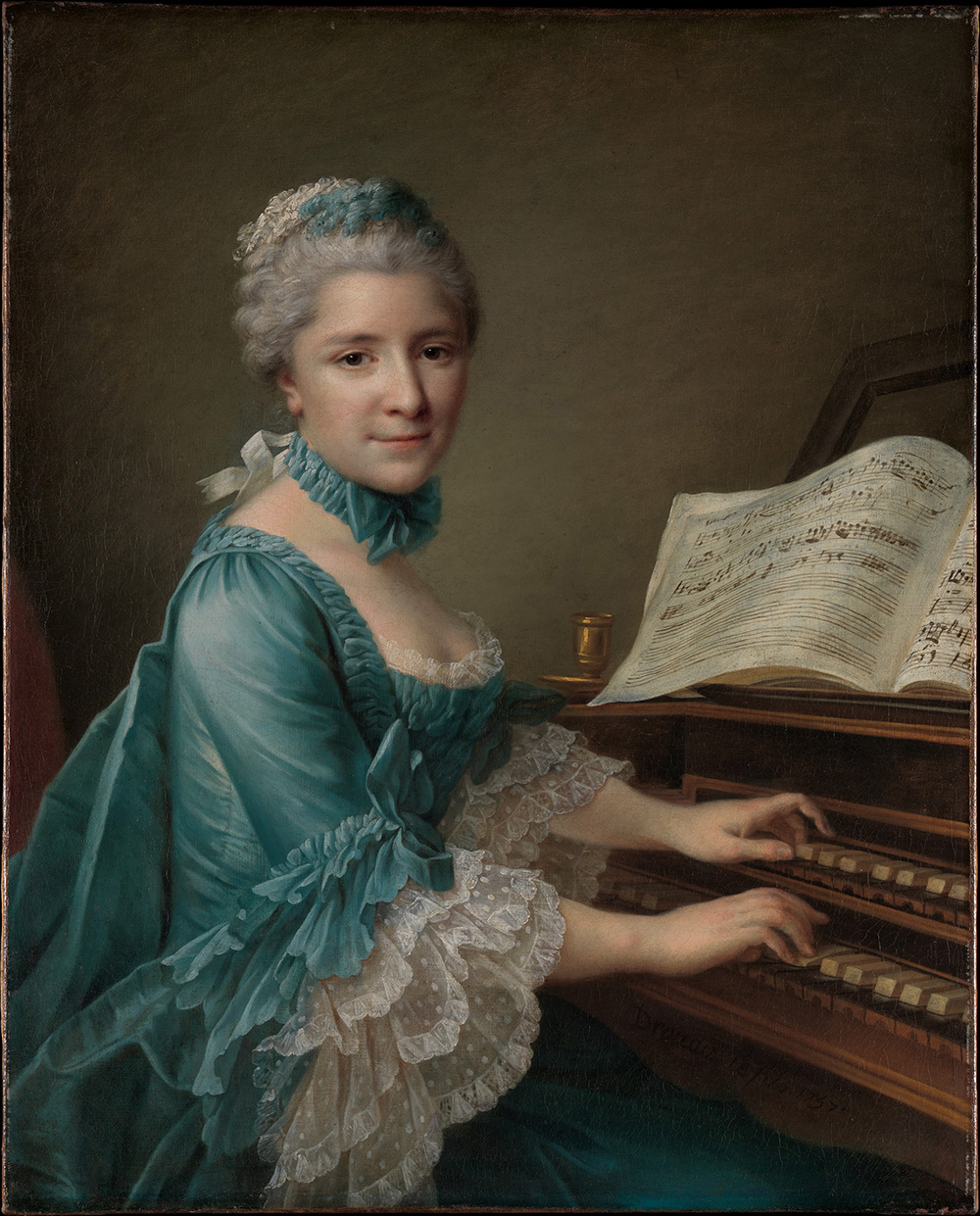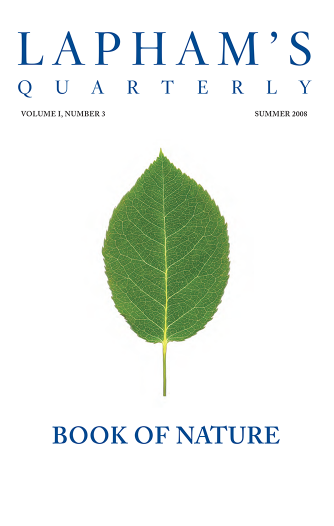[An orchard. Enter Don Pedro, Leonato, Claudio, and Balthasar with music.]
Don Pedro: Come, shall we hear this music?
Claudio: Yea, my good lord. How still the evening is,
As hushed on purpose to grace harmony!
Don Pedro: Come, Balthasar, we’ll hear that song again.
Balthasar: Oh, good my lord, tax not so bad a voice,
To slander music any more than once.
Don Pedro: It is the witness still of excellency,
To put a strange face on his own perfection:
I pray thee sing, and let me woo no more.
Balthasar: Because you talk of wooing I will sing,
Since many a wooer doth commence his suit,
To her he thinks not worthy, yet he woos,
Yet will he swear he loves.
Don Pedro: Nay, pray thee come;
Or if thou wilt hold longer argument,
Do it in notes.
Balthasar: Note this before my notes,
There’s not a note of mine that’s worth the noting.
Don Pedro: Why these are very crotchets that he speaks.
Note notes, forsooth, and nothing.
[Music]

Portrait of a Woman, Said to Be Madame Charles Simon Favart, by François Hubert Drouais, 1757. © The Metropolitan Museum of Art, Mr. and Mrs. Isaac D. Fletcher Collection, Bequest of Isaac D. Fletcher, 1917.
Balthasar: Sigh no more, ladies, sigh no more,
Men were deceivers ever,
One foot in sea, and one on shore,
To one thing constant never.
Then sigh not so, but let them go,
And be you blithe and bonny,
Converting all your sounds of woe,
Into hey nonny nonny.
Sing no more ditties, sing no mo,
Of dumps so dull and heavy,
The fraud of men was ever so,
Since summer first was leafy.
Then sigh not so, but let them go,
And be you blithe and bonny,
Converting all your sounds of woe
Into hey nonny nonny.
Don Pedro: By my troth a good song.
Balthasar: And an ill singer, my lord.
Don Pedro: Ha, no no faith, thou sing’st well enough for a shift.
From Much Ado About Nothing. Although the specific tune Balthasar sings in the scene is not recorded, the music historian Ross W. Duffin has written that the lyrical form fits a popular song of the period called “Lusty Gallant.” The stage direction in the folio edition of the play calls for the additional entrance of “Iacke Wilson”; some have taken this to indicate the sacred-music composer John Wilson played the role of Balthasar in an early production.
Back to Issue


